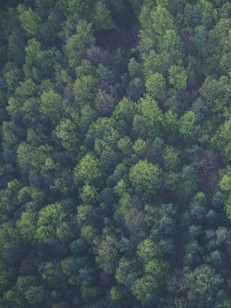Saving Earth, Saving Ourselves
- Swimmy
- Aug 22, 2020
- 3 min read
Updated: Jan 15, 2021
Breathe while we suffocate.
Heal while we suffer.
Be free while we are confined.
Forgive for we may never repent.
So long, my friend, until we meet again.
Minor changes to our habits and things we use, which can slow down this planet's destruction, are challenging but not that difficult. Considering that we locked ourselves up to save our lives, it is not a big ask either. Imagine the day nature became that selfish and stops trying to maintain the balance that we have systematically torn apart for decades? We would have nowhere to go.
If the last few months do not teach us a lesson, then nothing would. When the world goes back to the new normal, I hope that we do not forget the lessons learned. I hope we find it in ourselves to be kinder, gentler, and more caring towards all living beings and, most importantly, towards nature. We live the moments instead of just capturing them. We remember to stop and breathe. We recognize that being with family is a luxury that should not be taken for granted. Being one with nature may not last forever. Moreover, we need to learn to love ourselves first because we will spend the maximum amount of time on this planet with our own body and mind.
We still treat climate change as a distant possibility. Too little is taught in schools, and the national governments, while acutely aware of it, do not find it in themselves to treat this as a ticking time bomb. Being a financial analyst, I am very well aware that financially this is easier said than done. National growth needs to be maintained through infrastructure development; kids need to be vaccinated, people need to be fed, women's rights need to be protected, borders need to be secured. Better living standards need to be provided with access to health, education, and better jobs for all sections of the society, promotion of industry and commerce, clean water, sanitation, wellness, and the list is endless. But as with everything, where there is a will, there is a way. And it is as much a responsibility of every human as it is of our leaders.
To highlight the urgency, I can think of no better analogy than to compare climate change to computers' evolution. It was slow at the beginning. Everyone was skeptical that it would not last. Who would prefer typing their letters when you have an efficient secretary and a beautiful typewriter to do it? A few decades later, it is unimaginable to think of our lives without computers. That is because computers evolved. They became smarter, faster, and slimmer. Initially, the evolution was slow. Slow enough for people to ignore it as a phenomenon that would not last. The people who saw the change coming and adapted accordingly stayed relevant. Others became redundant.
Now take this analogy while you think about climate change, and you would understand that we do not have a second to lose. Even though at quite an evolved stage, science points out that the extent of damage is still within our grasp to control. Once it gathers momentum, it will lead to consequences which, as of now, are unimaginable. I close this article with a quote from a kid we can all learn from because Great Thunberg understands the danger that we are in even at a very young age. Moreover, she is doing something about it.
"We cannot solve a crisis without treating it as a crisis. And if solutions within the system are impossible to find, then maybe we should change the system itself. Sometimes we have to find a way. The moment we decide to fulfill something, we can do anything. And I'm sure the moment we start behaving as if we were in an emergency, we can avoid climate and ecological catastrophe. Humans are very adaptable: we can still fix this. But the opportunity to do so will not last for long. We must start today. We have no more excuses.











Comments